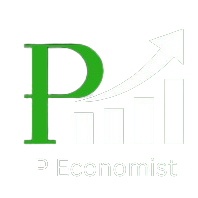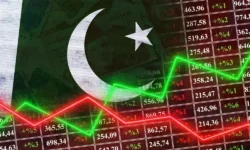International community’s confidence in Pakistan’s diverse economic sectors

Taimoor Mustafa
23 November 2023
Pakistan’s economy is gaining momentum and attracting the attention of the international
community as evidenced by the recent significant foreign interactions and investments in
Pakistan. In the forefront of this new momentum is the Special Investment
Facilitation Council (SIFC), which has emerged as a key player in uplifting Pakistan
economy, determining trajectory of the country’s economic growth by bringing
confidence in foreign investors, organizations and countries.
International community is showing unprecedented confidence in diverse sectors
under the SIFC’s auspices, demonstrating their positive confidence in Pakistan’s
Infrastructure, agriculture, IT, mines and minerals, energy and defence production.
Firstly, in agriculture sector, SIFC has been instrumental in establishing important
partnerships with foreign investors, resulting in signing of seven Memorandums of
Understanding (MOUs). These arrangements have allocated 140,000 acres of land for
cultivation purposes.
Most importantly council’s objective is to cultivate an additional 1.5 million acres land
through investments totaling $6 billion, primarily from countries such as Saudi
Arabia, the United Arab Emirates (UAE), Qatar, and Bahrain, with a focus on
corporate farming.
Notably, SIFC has played a critical role in facilitating the registration of an
agricultural processing zone for the WANA region, in alignment with the Export
Finance Scheme (EFS).
Secondly, in the field of information technology (IT), Pakistan is poised for growth
through strategic partnerships and collaborations with various countries. Under
Special Investment Facilitation Council (SIFC) Pakistan and Saudi Arabia signed
an IT MoU for cross-border operations, workforce exchange, and joint ventures.
Remarkably, Pakistan earned US $654.930 million by providing different Information
Technology (IT) services in various countries during the first three months of the
current fiscal year 2023-24. This shows a growth of 3.31 percent as compared with
the US $633.938 million earned through the provision of services during the
corresponding months of the last fiscal year
Moreover, REC Group of Pakistan and TGOOD, a leading Chinese company, signed
an MoU to promote environmentally friendly electric vehicles (EVs) in Pakistan.
Similarly, by virtue of SIFC, mineral production is quantified by robust growth figures
during Jul-Mar FY2022-23. Major minerals such as Coal (17.6%), Dolomite (42.2%),
Barytes (53.6%), Lime Stone (10.6%), Rock Salt (12.4%), and Ocher (15.4%) exemplify
Pakistan’s rich mineral reserves. Complemented by a noteworthy $72.7 million in Foreign
Direct Investment (FDI) from China and other sources, the mining sector stands poised
for substantial expansion, contributing to economic diversification and job creation.
Furthermore, Barrick Gold (A Canadian mining firm) and Pakistan government
signed an agreement resolving 10 years dispute on Riko Diq project. In the past,
international investors held 75pc of the total shareholding in the project that is potentially
the world’s largest gold and copper mine, with deposits capable of producing
200,000 tons of copper and 250,000 ounces of gold a year for nearly 50 years. Under
the new agreement, Barrick Gold will get half of the project ownership. While, Balochistan
and three federal state-owned firms 25 % each of the remainder. This agreement is also
a big achievement of Pakistan as Pakistan has successfully avoided USD 11 billion
fines ordered by the international arbitration court against its decision to deny the
joint venture of Barrick and Antofagasta the license to develop Reko Diq.
In the same context, Saudi Arabia and Egyptian billionaire Naguib Sawiris expressed
keen interest in participating in the RekoDiq venture.
In addition to that, Canadian Mineral Sector Investment Company “TYTAN COPPER”
has shown interest in investing in exploration and mining in KPK, specifically
focusing on copper reserves.
Moreover, Pak- China has signed MoU in various sectors including, Commerce,
Communication, Transport, Connectivity, Food security, Media, Space
cooperation, Urban development, Capacity building, Minerals, Industrial
cooperation, Climate change and Vaccine development.
While on other hand, China has signed advisory deal to boost development of
Gwadar Port, with assistance from NDRC institutes for Planning, Construction,
Operation, Logistics, and Industry at Gwadar Port. Moreover, to improve Railway
infrastructure, China and Pakistan have Signed a $6.7 Billion ML-I Railway Project to
revamp Peshawar-Karachi route.
Additionally, Pakistan has attracted significant investments in energy sector.
NorHydro, a Norwegian enterprise, has entered into an agreement with the
Pakistani government to invest $7 million in solar and hydropower generation. This
investment aims to enhance Pakistan’s renewable energy capacity.
Furthermore, China has signed a Memorandum of Understanding worth $1.5 billion to
increase petroleum capacity and high-speed diesel (HSD) production in Pakistan.
Meanwhile, Saudi Arabian company WAFI Energy LLC has expressed interest in
obtaining up to 77.42% of Shell stock. Further, a potential $200 million deal is on
horizon as a British energy giant seeks to acquire stakes in Shell Pakistan (SPL).
Another noteworthy project is the construction of the 884-megawatt Suki Kinari
Hydropower Project, which is progressing rapidly as part of the China-Pakistan
Economic Corridor. This initiative, focused on infrastructure and energy development,
strengthening Pakistan’s energy sector and overall infrastructure.
Moreover, Pakistan’s government-backed oil and gas companies have joined forces
with Saudi oil company Aramco in a significant partnership worth $10 billion. This
collaboration aims to boost the oil and gas sector in Pakistan and promote further
investment and development in the industry.
Last but not least, under the auspices of SIFC, Strategic collaborations in defense
manufacturing are exemplified by extension of the U.S.–Pakistan Science and
Technology Cooperation Agreement and partnerships with China which underscore
Pakistan’s pivotal role. These agreements not only fortify national security but also pave
the way for technological exchange and advancements.
Simultaneously, the International Finance Corporation is unveiling an impressive
$1.5 billion investment plan for Pakistan. Expanding its financial support, Pakistan
has secured an additional $1.4 billion from the International Monetary Fund, World
Bank, and Islamic Development Bank.
Looking ahead, the country anticipates substantial foreign direct investment
commitments, ranging from $3-5 billion, facilitated by the SIFC-driven projects and
expected from Saudi Arabia and the United Arab Emirates. Strengthening financial
ties, the Arab Monetary Fund and the State Bank of Pakistan have entered into a
partnership aimed at enhancing cross-border remittances. This confluence of financial
commitments underscores a comprehensive approach to bolstering Pakistan’s economic
landscape through strategic collaborations and investments.
On the legislative front, European Union’s Fourth GSP Report acknowledged
Pakistan’s significant progress on the legislative front, and appreciated measures
taken in various sectors. Like in other GSP+ beneficiary countries, Pakistani authorities
at various levels have contributed through dialogue.
In short, with the recognition of International Community due to efforts of the
Special Investment Facilitation Council (SIFC), Pakistan is poised to become one
of the top economies in the world. The projected $1 trillion economy by 2035 and
the potential to become the 6th largest economy by 2075, as predicted by Goldman
Sachs, highlight the positive prospects of Pakistan’s economic growth. With whole
of the nation approach in economic domain, Pakistan has all the potentials to become the
most advanced economies of the world.





